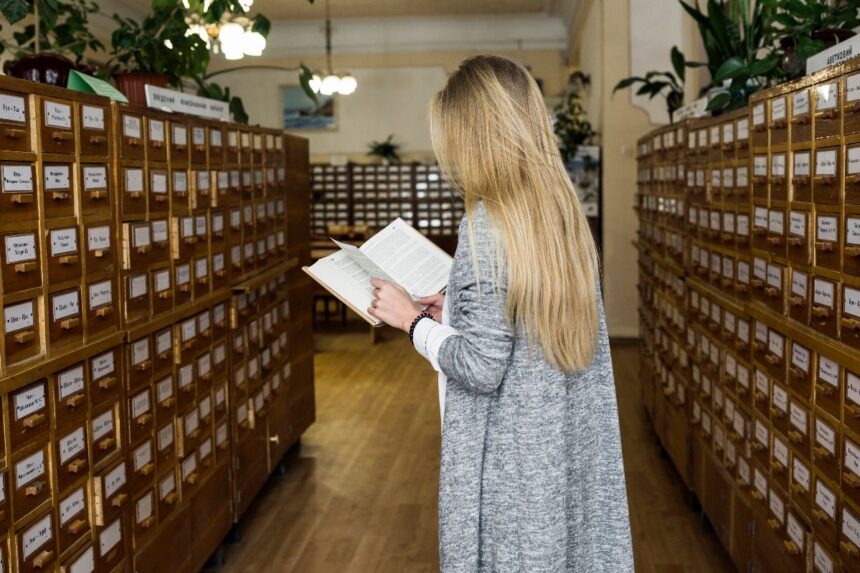Have you ever stumbled upon a name online that echoes through the halls of internet history? One such name is The Kristen Archives. For decades, this platform has been a unique and often misunderstood corner of the web. Many people have heard the name, but few know the whole story. It is more than just a website; it is a digital time capsule that reflects the evolution of online communities and storytelling. This article will pull back the curtain on the secrets and history of this fascinating collection. We will explore its unexpected origins, its transformation over the years, and its role in the world of user-generated content. Get ready to discover a side of the internet you never knew.
What Exactly Are The Kristen Archives?
Before we dive into the history, let us clearly define what we are talking about. The Kristen Archives is a massive online repository of user-submitted stories. Think of it as a vast, digital library where anyone can contribute their own creative writing. The content spans a wide range of genres, from romance and adventure to fantasy and personal anecdotes. It started long before social media platforms like Wattpad became popular, making it a pioneer in community-driven literature. Its longevity is a testament to its dedicated user base. Understanding its basic function as a storytelling hub is the first step toward appreciating its cultural impact and the secrets it holds within its countless pages.
The Humble Beginnings: A Text-Based Time Capsule
In the early days of the internet, websites were simple. They were built on plain HTML and were primarily text-based. The Kristen Archives was born in this era, a time of dial-up modems and basic web browsers. It did not have the flashy graphics or complex algorithms of modern sites. It was, at its heart, a meticulously organized collection of text files. The founder, believed to be Kristen, started it as a personal project to archive and share stories from Usenet groups and early forums. This grassroots beginning is a crucial part of its secret history. It was not created by a large corporation but by an individual passionate about preserving a specific type of digital folklore, making it a valuable relic of the internet’s community-centric past.
The Pre-Social Media Story Hub
Before platforms like Instagram or Twitter, people connected through forums and email lists; they shared stories for entertainment and connection. The Kristen Archives became a central hub for this kind of sharing. It was a place where amateur writers could find an audience without needing a publisher. The platform’s simplicity was its strength. It focused entirely on the words, allowing the narratives to shine without distraction. This pure focus on content fostered a strong sense of community among its early users, who would recommend stories and provide feedback through simpler means, long before the ‘like’ button was invented.
The Great Transformation: Evolution Over Decades
One of the biggest secrets of The Kristen Archives is how much it has changed while staying true to its core purpose. From its basic HTML origins, the site has undergone several significant overhauls. It has adopted new web standards, improved its navigation, and expanded its categories to accommodate a growing, diverse collection of stories. This evolution was not just cosmetic. It represented a shift from a static archive to a dynamic, living library. The platform managed to survive the dot-com bubble, the rise of Web 2.0, and the mobile revolution, a feat that many early websites did not accomplish. This resilience is a key part of its story.
Key Features of the Modern Platform
Today, the platform boasts features that make it accessible to a new generation of readers and writers.
-
Vast Categorization: Stories are sorted into numerous genres and sub-genres, making it easy to find specific types of content.
-
Search Functionality: Unlike its early days, users can now search for stories by title, author, or keyword.
-
User Submissions: The heart of the site is its open submission policy, which encourages a constant influx of new material.
-
Simple Interface: Despite updates, it maintains a relatively straightforward layout, prioritizing easy access to its literary content.
The Cultural Impact: More Than Just Stories
The influence of The Kristen Archives extends beyond its own URL. It served as a training ground for aspiring writers. Many people penned their first stories on this platform, learning about narrative pacing, character development, and audience engagement. In a way, it was an informal, massive creative writing workshop. It also demonstrated the power of niche online communities long before the internet became mainstream. It proved that there was a hunger for user-generated, long-form content, paving the way for future platforms. As discussed in an analysis of digital culture on Inspirationfeed, such early websites are crucial to understanding the social dynamics of the internet.
A Table Comparison: Then vs. Now
| Feature | The Early Archives (1990s-early 2000s) | The Modern Archives (Present Day) |
|---|---|---|
| Design | Basic HTML, text-heavy | More modern CSS, better visual structure |
| Interaction | Primarily via email; limited feedback | Searchable, categorized, with clearer pathways |
| Content Scope | Smaller, often curated from other sources | Vast, almost entirely user-submitted |
| Accessibility | Limited to desktop computers | Accessible on various devices, including mobile |
Navigating the Archives: A Guide for Newcomers
If you are new to The Kristen Archives, the sheer volume of content can be overwhelming. The secret to a good experience is knowing how to navigate. Start by browsing the main categories that interest you. Use the search function if you have a specific theme in mind. Remember that the stories are a product of their time, so you may encounter writing styles and formats that feel dated, but that is part of the charm. It is like exploring a library where every book is a personal project from someone, somewhere in the world. Approach it with an open mind and a sense of curiosity, and you will uncover hidden gems of digital storytelling.
Key Takeaways: The Lasting Legacy
So, what are the main secrets and lessons from the story of The Kristen Archives?
-
It is a pioneer of online, user-generated storytelling.
-
Its longevity is a result of adaptation and a dedicated community.
-
It provides a unique window into the history of internet culture.
-
It remains a testament to the enduring human desire to create and share stories.
Conclusion: A Digital Monument to Storytelling
The Kristen Archives is far more than its reputation often suggests. It is a living museum of internet history and a continuous celebration of amateur creativity. Its secrets are not of scandal, but of survival, adaptation, and community. From its text-based beginnings to its current form, it has provided a space for voices that might otherwise go unheard. In an age of algorithmic feeds and sponsored content, it stands as a reminder of the internet’s grassroots potential. The next time you hear the name, you will know the rich history and cultural significance that lies behind this unique digital archive.
FAQ
Is The Kristen Archives free to use?
Yes, the platform has always been a free resource for both readers and contributors. This open-access model is a core part of its identity.
Who can submit stories to the collection?
Traditionally, the platform has been open to submissions from anyone. The process involves following specific submission guidelines to ensure the story is formatted correctly for the site.
How does it differ from sites like Wattpad?
While both are for storytelling, The Kristen Archives began in a much earlier era of the internet. Its interface and structure are more straightforward, and it carries a vast backlog of stories from the dawn of online creative writing, offering a different historical perspective. The Library of Congress has documented the importance of preserving such digital heritage, highlighting its value for future research.






